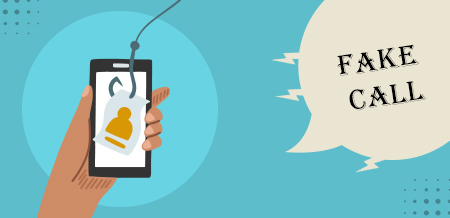Alert from Scammers! How to avoid scams? | TechDrive Support Inc
A scam is a fraudulent scheme where someone takes your money without providing what they promised. They may use deceptive tactics, such as making you think you're getting a good deal when you're not, or by promising something that's impossible to deliver. Scams can take many forms, from fake products and services to Ponzi schemes and investment fraud. Watch out for these warning signs: if someone seems too good to be true, it probably is. So, you have to learn how to protect yourself from being scammed.
Types of scams:
People are often unfamiliar with the different types of scams and what to watch out for. There are many types of scams, but the most common is fraud. Other scams include blackmail, phishing, and identity theft. Scams can be perpetrated by individuals or businesses. Some scams are targeted at specific groups of people (such as seniors), while others are general awareness campaigns that rely on greed or ignorance to work. All these scams have one thing in common: they’re designed to take advantage of people. This article will outline the different types and how to identify them. Here are some of the most common scams:
Phishing emails
Fake calls
Fake SMS
Pop-ups
To avoid being scammed, always be suspicious of anyone who asks for personal information over the internet. Don't trust unsolicited email offers or pop-ups asking you to download a program or whitelist a site. Because not everyone is a trusted brand like TechDrive Support Inc who cares and respect for your hardly earned money and personal data.
How are these scams executed?
Online scammers are masters at using technology to deceive people. They may use fake calls or text messages to trick you into handing over your personal information, or they may place pop-ups on your screen without your consent. However, they get your information, the goal of online scammers is always the same: to steal your money. So be vigilant when exploring the internet, and don't let yourself be taken advantage of.
Scams are done in many different ways, but they all have one common goal: to steal your money. Here are 4 ways scams are typically executed:
Phishing Emails

These emails look like they’re from a trusted source, like your bank or PayPal, but they ask you to enter your personal information. Once you do, the scammers can get hold of your account information and steal your money.
Fake SMS

These scammers lure you by fake SMSs and exaggerate their products and make false promises or any phony offers, and then they take your money without ever delivering on their promises.
Pop Ups

These scams are done with the help of applications in your PC or mobile phone that promise a lot about their services and to provide great service to you might be a scam and this is a very common way to put a person in a scam.
So be aware of these pop-ups and check all necessary details about the company.
Fake Calls

These are similar to fake SMS and phishing emails, this type of scam is carried out by a phone call that promises a lot of benefits but these companies call behind the name of other companies.
You can checkout these company's website and check for the offer they are providing, also while making the purchase do check if you are paying at the same company.
How to avoid scams:
Scams are on the rise, so it's important to be aware of what to look for. There are a few things you can do to help avoid getting scammed, like being suspicious of unsolicited emails and calls. When it comes to avoiding scams, it’s important to be aware of common red flags and how to protect yourself. Here are some tips to help you stay safe and learn how to identify scams and protect yourself.
Beware of unsolicited calls or emails that seem too good to be true. Scammers will use any opportunity to get your personal information, so be careful about what responses you give.
Never give out personal information to someone you don't know or trust.
Watch out for unusual requests, like needing money to send a package, investing in a scheme, or purchasing something online.
If something seems too good to be true, it probably is!
Also, if you do get scammed, don't be afraid to report it to your local police department or you can take help from our team of experts that are available 24/7 at your service.
Conclusion
Be aware of scams. They can take many different forms, but all of them aim to take your money without giving you what you bargained for. If something seems too good to be true, it probably is. Don't let the scammers get away with taking your money, and be sure to use common sense when dealing with unfamiliar or unsolicited offers. Hope all your queries are solved but if you have any other query feel free to contact TechDrive Support Inc.


.jpg)

Comments
Post a Comment